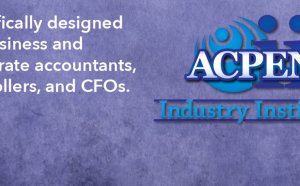
Environmental Accounting and Auditing
Generations ago few people were aware of economics beyond their own jobs and expenses, and few companies thought beyond the economics of their profit and loss statements. Industries were neither clean nor green, and gave little consideration to the environmental impact of their business.
In the late 19th century a handful of men passionate about the natural beauty of the country in which we live advocated for its protection and appreciation, and the environmental movement was born and supported by the action of a president who established the National Park System, and a man by the name of John Muir who mused over the beauty of a valley called Yosemite.
Those simple actions helped grow an awareness of the value of the world in which we live, and our obligations to it as stewards. As that awareness grew the public and industry alike began to see the potential for major environmental problems. This realization brought environmentalism into the world of business.
Today businesses face a ladder of environmental regulations and industries from manufacturing to technology must now consider their ecologic and social impact. Businesses today are required to consider their larger footprint, and the smartest of those businesses learn how to do it in away that is not only ecologically and socially responsible, but also economically feasible and financially beneficial.
Financial health and profitability seldom happen by accident, and without proper planning and foresight, navigating environmental legislation and social reporting could drain a business dry. Environmental and social accounting grew out of an imperative to balance a company’s financial health with its broader obligations.
An Elegant Contrast
While the fast-paced, hardworking world of business and industry may seem at odds with the typical image of environmentalism; the concepts are actually uniquely compatible. Consider the terms “environmental accounting, ” “sustainability accounting” or “social accounting” and replace the words environmental, sustainability or social with the word “longevity” - and the concept crystallizes as a business imperative.While entrepreneurs may not know the life span of the businesses they start, they certainly don’t plan for imminent extinction. The economics of sustainability, renewable resources, a robust workforce and global opportunity are essential to businesses that plan for growth. Raw materials are finite, skilled employees are assets, and fines for unsound environmental practices can eat away profit margins in a single audit.
The Terms
Environmental Accounting – Environmental accounting is the practice of incorporating principles of environmental management and conservation into reporting practices and cost/benefit analyses. Environmental accounting allows a business to see the impact of ecologically sustainable practices in everything from their supply chain to facility expansion. It allows accountants to report on the economic impact of those decisions to stakeholders so as to allow for proactive decision making about processes that simultaneously meet environmental regulations while adding to the bottom line.
Consumer sophistication with regard to environmentalism and the negative impact of non-renewable practices creates another dimension of accountability. Businesses that can point to the integration of environmental management in their business practices have a leg up in the public relations sphere.
Sustainability Accounting and Measurement – Sustainability is the principle of engaging in practices that will not deplete a resource, and sustainability accounting and measurement is to engage in practices that allow a business to measure and assess the environmental impact of its activities. Sustainability measurement is a quantitative basis for management of sustainability practices. When a business makes a decision to use green packaging (a sustainable practice), it needs to know how that increased cost is offset with decreased waste disposal costs or increased consumer interest, in addition to the environmental implications (sustainability measurement).
Sustainability measurement and accounting can also be applied to areas of social impact, especially for those businesses engaging in international commerce where materials and workforce considerations become a matter of public scrutiny. The United Nations launched an educational program expressly for promoting sustainability practices, which was aptly named Sustainable Consumption and Production.This program promotes resource efficiency while creating opportunity by way of jobs in new and expanding markets.
Social accounting The new kid on the block, social accounting has only been around since the 1960’s. Social accounting is the collection of information about an organization’s interaction with all of its stakeholders. Social accounting identifies stakeholders broadly, defining them as any person or entity that is influenced by the organization.
This broad definition creates an accounting and reporting strategy that incorporates a business operation’s impact on the workforce, the local community, the business community and so on, and in turn their impact on the business. Where traditional accounting might not consider the positive financial influence of a city’s satisfaction with a business as an employer, social accounting will identify that influence and attempt to measure the financial impact that accompanies community support.
Systems and Metrics for Sustainability Measurement
There are a number of systems of measurement that can be employed on an organizational level to develop metrics for analyzing the impact of choices made in response to environmental or social imperatives. Audit and measurement are the backbone of environmental and social accounting, so adopting proven strategies to learn essential metrics will assist accountants with effective analysis.
GRI – The Global Reporting Initiative is an international organization based in Amsterdam that developed a sustainability reporting framework. The framework establishes performance indictors for measurement of social, environmental and economic impact through business decision making. Reports based on the GRI Framework can be used as internal measures or as a means to demonstrate compliance with laws. A business that joins the alliance or participates in the training process applies the framework’s measurement principles to its accounting practices.
ISO 14000 – Often considered the gold standard for measurement and standardization, The International Organization for Standardization has evolved from 9000 to 10000 to 14000. The 14000 series includes protocols that assist with development of environmental controls and measurement systems.
YOU MIGHT ALSO LIKE



Share this Post
Related posts
Accounting and Auditing CPE
The “new economy” really means new ways of doing business that involve digital and borderless transactions. That is, a business…
Read MoreJournal of Modern Accounting and Auditing
The objectives of the present study are to put forth the concept of corporate social responsibility (CSR) in Turkey (Kayseri)…
Read More










